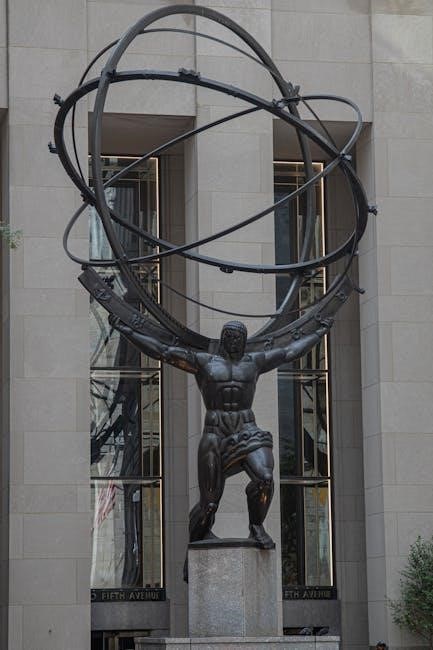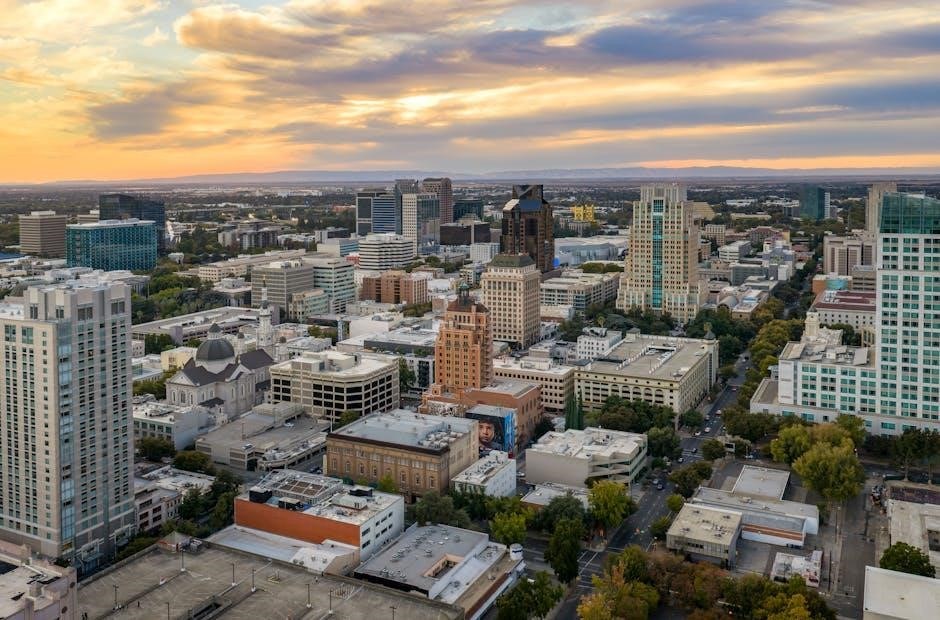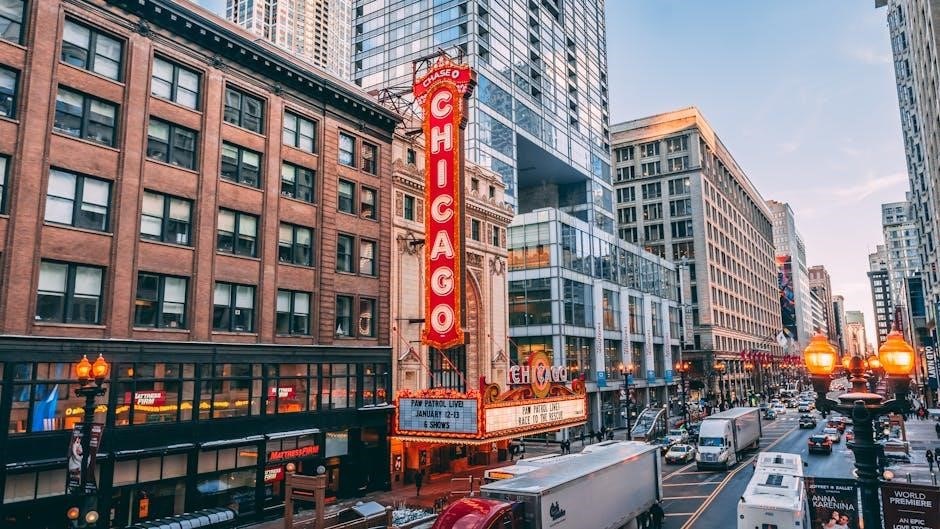Exploring the cultural and historical transformation of America, this article examines how societal shifts, economic changes, and political policies fostered a rise in meanness and division.
1.1. Understanding the Concept of Meanness in American Culture
Meanness in American culture reflects a societal shift toward individualism, lack of empathy, and heightened conflict. It manifests in behaviors like disregard for others’ well-being, aggressive communication, and a focus on personal gain over collective good. This cultural transformation is deeply rooted in historical and economic factors, such as the decline of community values and the rise of capitalist competition. The normalization of meanness is further amplified by media, politics, and social structures, creating a cycle that perpetuates division and hostility. Understanding this concept is crucial for addressing its societal impact and fostering change.
1.2. The Significance of the Title “How America Got Mean”
The title “How America Got Mean” captures the essence of a cultural transformation, highlighting the nation’s shift toward increased meanness and division. It reflects a journey from collective values to individualism and conflict. The phrase “got mean” suggests a gradual process, emphasizing how societal, economic, and political factors have eroded empathy and civility. The title invites exploration of these changes, urging readers to confront the root causes of meanness in American society and its implications for the future. It serves as a call to understand and address this pervasive cultural issue.
1.3. Overview of the Article’s Objectives
This article aims to explore the cultural, historical, and economic factors that contributed to the rise of meanness in American society. By examining key historical events, societal shifts, and political changes, the piece seeks to understand how collective values of empathy and unity gave way to division and hostility. The objectives include identifying the root causes of meanness, analyzing its impact on social dynamics, and exploring potential solutions to foster a more compassionate society. The article aims to provide a comprehensive understanding of this transformation and inspire reflection on the importance of kindness and unity in America’s future.

Historical Context of Meanness in America
America’s history reveals early seeds of meanness, from colonial exploitation to slavery and industrialization, shaping a culture of competition and inequality that persists today.
2.1. Early American History and the Seeds of Meanness
America’s early history was marked by colonization and exploitation, where the pursuit of wealth and power often overshadowed ethical considerations. The treatment of Native Americans, enforced through violent displacement and cultural erasure, exemplified this meanness. Similarly, the institution of slavery embedded systemic racism and brutality, creating a foundation of inequality. These practices, justified by notions of racial and cultural superiority, set a precedent for future generations. The aggressive expansion westward further reinforced a culture of competition and disregard for vulnerable populations, laying the groundwork for ongoing societal division.
2.2. The Role of the Industrial Revolution in Shaping Meanness
The Industrial Revolution transformed America’s economy but also deepened societal divisions. Industrialists like Rockefeller and Carnegie amassed fortunes while workers faced harsh conditions, low wages, and long hours. The rise of monopolies and trusts fostered cutthroat competition, prioritizing profit over people. Immigration surged, but newcomers often encountered discrimination and exploitation. This era highlighted a growing disparity between wealth and poverty, as the elite enjoyed opulence while the working class struggled. These dynamics eroded empathy and reinforced a culture of individualism, where success was often achieved at the expense of others, further embedding meanness into American society.
2.3. The Great Depression and Its Impact on Social Behavior
The Great Depression brought unprecedented economic hardship, reshaping American social dynamics. Widespread unemployment and poverty fostered desperation, leading to increased competition for scarce resources. Many individuals became more self-focused, as survival often took precedence over community support. This era saw a rise in mistrust and resentment, as people blamed one another for their struggles. The breakdown of social cohesion and the decline of collective empathy deepened societal divisions. While some communities rallied together, the overall atmosphere of scarcity and despair heightened meanness, as hopelessness and frustration became widespread. This period underscored the fragility of social bonds in times of crisis.
The Rise of Meanness in the 20th Century
Post-WWII prosperity fueled individualism, while civil rights backlash and 1980s consumerism deepened societal divisions, fostering a culture of self-interest and diminished empathy among Americans.
3.1. Post-WWII Prosperity and the Emergence of Individualism
Following World War II, America experienced unprecedented economic growth, fostering a culture of consumerism and individualism. Suburbanization and the rise of the middle class created a focus on personal achievement and material success. This shift away from collective values toward self-reliance and competition laid the groundwork for a more fragmented society. The emphasis on individual goals over community well-being contributed to a growing sense of disconnect and meanness, as people increasingly prioritized their own interests over the common good.
3.2. The Civil Rights Movement and Backlash
The Civil Rights Movement of the 1950s and 1960s sought to dismantle systemic racism, achieving landmark legislation like the Civil Rights Act and Voting Rights Act. However, this progress was met with fierce resistance, including violent protests, segregationist policies, and the rise of groups like the Ku Klux Klan. The backlash reflected deep-seated racial tensions and a refusal to accept equality, perpetuating division and meanness. This era highlighted how societal progress often triggers opposition, revealing the darker underpinnings of American culture and its struggle with inclusivity.
3.3. The 1980s and the Reagan Era
The 1980s, under Ronald Reagan’s presidency, marked a shift toward conservatism and individualism. Reagan’s policies, including tax cuts for the wealthy and deregulation, widened economic inequality. The era saw a decline in social welfare programs, fostering a culture of self-reliance over collective responsibility. Rhetoric around “welfare queens” and “tough on crime” policies further divided society. The rise of media personalities like Rush Limbaugh amplified divisive language, while the Iran-Contra affair highlighted a disregard for accountability. This period entrenched a mindset of winners and losers, deepening America’s meanness and polarization.
The Role of Media in Promoting Meanness
Media has amplified meanness by normalizing conflict, sensationalizing negativity, and creating echo chambers that foster divisiveness, contributing to a harsher cultural tone and social polarization.
4.1. Reality TV and the Glamorization of Conflict
Reality TV has played a significant role in normalizing meanness by showcasing conflict, drama, and competition as entertainment. Shows like Survivor and The Bachelor often highlight cutthroat strategies and emotional manipulation, making such behavior appear acceptable and even admirable. This glorification of conflict desensitizes audiences, fostering a culture where aggression and ruthlessness are celebrated over empathy and cooperation. By elevating drama to a form of spectacle, reality TV reflects and amplifies a societal shift toward valuing winning above kindness, further embedding meanness into American culture.
4.2. The Rise of Talk Radio and Its Impact

Talk radio emerged as a powerful medium in the late 20th century, amplifying divisive rhetoric and fostering a culture of confrontation. Hosts like Rush Limbaugh popularized aggressive, opinion-driven content, often targeting marginalized groups and political opponents. This format thrived on controversy, encouraging listeners to embrace polarized views and dismiss opposing perspectives. By normalizing hostility and mockery, talk radio contributed to a coarsening of public discourse, making meanness a staple of American communication and deepening societal divisions. Its influence continues to shape how people engage with politics and each other.

4.3. Social Media and the Amplification of Meanness
Social media platforms have become breeding grounds for meanness, amplifying divisive rhetoric and personal attacks. Algorithms prioritize controversial content, creating echo chambers that reinforce polarization. Anonymity emboldens users to engage in trolling and harassment, often targeting marginalized groups. The instant gratification of likes and shares rewards provocative behavior, fostering a culture of outrage. This digital environment has eroded civil discourse, turning public spaces into battlegrounds. Social media’s role in spreading meanness reflects and exacerbates broader societal divisions, making it a key driver of America’s growing hostility.

Economic Factors Contributing to Meanness
Economic inequality, job insecurity, and declining access to resources have fueled meanness. Financial struggles create frustration, fostering resentment toward others perceived as competitors or threats.
5.1. The Decline of the Middle Class
The decline of the middle class has significantly contributed to economic instability and stress. Stagnant wages, outsourcing, and automation have eroded job security, leading to financial strain. As middle-class families struggle to maintain their standard of living, feelings of frustration and resentment grow. This economic precariousness fosters competition over limited resources, reducing empathy and increasing meanness. The shrinking middle class has also weakened social cohesion, as individuals prioritize self-interest over collective well-being, further entrenching divisive behaviors in American society.
5.2. The Rise of Economic Inequality
The widening wealth gap in America has fueled meanness by creating a culture of competition and scarcity. As the rich grow richer and the poor struggle to survive, resentment and frustration intensify. Tax policies favoring the wealthy and cuts to social programs have exacerbated inequality, leaving many feeling disenfranchised. This disparity fosters a zero-sum mindset, where individuals view others as obstacles to their success. The erosion of social cohesion and empathy stems from this economic divide, as people become more focused on their own survival than collective well-being.
5.3. The Gig Economy and Its Effects on Workers
The gig economy has reshaped work, fostering instability and insecurity. Millions of workers now face irregular hours, lack of benefits, and no job security, creating a culture of constant competition. Without safety nets, workers are pitted against each other, eroding solidarity and fueling cutthroat behavior. The stress of financial uncertainty breeds anxiety and resentment, contributing to a society where meanness thrives. This shift away from stable employment has undermined workers’ dignity and collective power, exacerbating the broader cultural trend of cruelty and self-interest in America.

The Role of Politics in Fostering Meanness
Politics has fueled meanness through divisive rhetoric, partisan gridlock, and policies prioritizing power over people, fostering hostility and eroding trust in institutions and each other.

6.1. The Shift from New Deal to Neoliberal Policies
The transition from New Deal progressive policies to neoliberal ideologies marked a significant shift in America’s political landscape. Neoliberalism emphasized free-market principles, deregulation, and reduced government intervention, prioritizing economic efficiency over social welfare. This shift, accelerating in the late 20th century, eroded collective responsibility and exacerbated inequality. By favoring corporate interests and individualism, neoliberal policies undermined the social safety net established by the New Deal, fostering a culture of competition and self-reliance. This transformation contributed to a societal mindset where success was increasingly viewed as an individual achievement, rather than a collective effort, amplifying meanness and reducing empathy for those struggling.
6.2. The War on Drugs and Mass Incarceration
The War on Drugs, launched in the 1970s and intensified in the 1980s, led to aggressive policing and harsh sentencing laws. This campaign disproportionately targeted marginalized communities, fueling mass incarceration. Mandatory minimum sentences and “tough on crime” policies filled prisons, often for nonviolent offenses. The stigma of incarceration and the loss of voting rights further entrenched inequality. This era deepened societal divisions, fostering a culture of punishment over rehabilitation and contributing to widespread meanness by dehumanizing those caught in the system.
6.3. The Rise of Divisive Politics in the 21st Century
The 21st century saw a sharp rise in divisive politics, fueled by polarization and partisan rhetoric. The 24-hour news cycle and social media amplified differences, creating echo chambers. Politicians increasingly used “us versus them” narratives to mobilize bases, deepening mistrust. Issues like immigration, race, and identity became flashpoints for conflict. This divisiveness eroded bipartisan cooperation and fostered a culture of hostility, making compromise seem like weakness. The result was a society where political differences often overshadowed shared humanity, embedding meanness into the fabric of public discourse.
Cultural Shifts and Meanness
America’s cultural transformation, marked by declining empathy and rising individualism, has fostered meanness. Societal shifts toward self-reliance and competition have eroded communal bonds, amplifying interpersonal hostility and division.
7.1. The Decline of Civic Engagement
The decline of civic engagement has profoundly impacted America’s collective kindness. Fewer people participate in local governments, vote in elections, or join community organizations. This disconnection fosters a sense of isolation, reducing empathy and increasing meanness. Trust in institutions has waned, leading to polarization and division. Social media amplifies negative interactions, further eroding constructive dialogue. As people disengage from civic life, communities weaken, and societal cohesion frays. This trend undermines the shared responsibility necessary for a compassionate society, leaving room for self-interest and hostility to thrive.
7.2. The Rise of Celebrity Culture
The rise of celebrity culture has contributed to America’s meanness by fostering a society obsessed with fame and wealth. Reality TV, tabloids, and social media glorify conflict and drama, normalizing aggressive behavior. Celebrities often embody individualism and materialism, discouraging empathy for others. The idolization of self-centered figures has eroded humility and kindness, promoting a culture of competition over collaboration. This shift has led to a decline in genuine human connection, as people focus on idealized personas rather than real-world relationships, further fueling societal meanness and disconnection.
7.3. The Role of Education in Shaping Meanness

Education’s role in shaping meanness lies in its shifting focus from empathy to competition. Schools prioritizing standardized testing and performance metrics over emotional intelligence create environments where students may view others as rivals rather than peers. Budget cuts reducing arts and extracurricular programs diminish opportunities for developing compassion and collaboration. Zero-tolerance policies fostering strict discipline can cultivate a culture of fear and isolation. Additionally, curricula that neglect diverse perspectives may hinder empathy, while higher education’s emphasis on careerism over ethics can produce leaders lacking moral depth, all contributing to a broader societal meanness.

Addressing Meanness in America
Addressing meanness requires fostering empathy, inclusivity, and kindness. It involves promoting mental health support, encouraging community engagement, and advocating for policies that reduce inequality and build compassion.
8.1. The Need for Empathy and Understanding
Empathy and understanding are crucial for combating meanness in America. By fostering these values, individuals can bridge societal divides and cultivate compassion. Encouraging active listening and perspective-taking helps break down stereotypes and biases. Education systems should prioritize emotional intelligence to nurture empathetic behaviors from a young age. Media also plays a role by promoting stories that highlight shared human experiences. Without empathy, meanness perpetuates, leading to further polarization and social dysfunction. Reviving these values is essential for rebuilding a more compassionate and unified society.
8.2. Policy Changes to Promote Equality
Addressing meanness requires policy changes that promote equality and reduce systemic disparities. Progressive taxation, affordable healthcare, and education reform can help level the playing field. Strengthening labor protections and raising the minimum wage ensure fair compensation. Anti-discrimination laws and criminal justice reform are vital to combating systemic inequities. By prioritizing policies that foster equality, America can create a society where everyone has opportunities to thrive, reducing resentment and fostering unity. These changes are foundational to reversing the cultural shift toward meanness and rebuilding a more equitable nation.
8.3. The Role of Community and Grassroots Movements
Grassroots movements and community initiatives play a pivotal role in combating meanness by fostering unity and empathy. Local organizations, volunteer groups, and neighborhood efforts create spaces for connection, reducing divisions; These movements often focus on shared goals, such as improving education, healthcare, or environmental sustainability, which bring people together. By empowering individuals to take action, grassroots efforts rebuild trust and strengthen social bonds. They also amplify marginalized voices, promoting inclusivity and understanding. Such community-driven initiatives are essential for cultivating kindness and reversing the tide of meanness in American society.
America’s meanness stems from historical, economic, and cultural shifts, but collective efforts can foster empathy and unity, paving the way for a more compassionate future.

9.1. Summarizing the Key Points
America’s meanness is rooted in historical shifts, economic inequality, media influence, and political polarization. The decline of the middle class, rise of reality TV, and divisive rhetoric have amplified conflict. Social media has further fueled toxic interactions, while policies like mass incarceration and neoliberal economics exacerbated societal divides. Cultural changes, such as declining civic engagement and celebrity culture, have eroded empathy. Understanding these factors is crucial for addressing meanness and fostering a more compassionate society.
9.2. The Path Forward for a Kinder America
A kinder America requires fostering empathy, unity, and collective responsibility. Encouraging open dialogue and understanding across divides can help heal societal fractures. Policy reforms addressing inequality, such as fair wages and access to education, are essential. Promoting mental health support and community engagement can nurture compassion. Education systems should emphasize emotional intelligence and civic values. Grassroots movements and leadership committed to inclusivity can drive lasting change. By prioritizing empathy and cooperation, America can shift away from meanness toward a culture of kindness and mutual respect.
9.3. Final Thoughts on the Topic
America’s meanness is a complex issue rooted in historical, cultural, and economic factors. To address it, the nation must prioritize empathy, equity, and unity. By learning from the past and fostering inclusive policies, America can move toward a future where kindness and compassion prevail. The journey requires collective effort, starting with individual actions and systemic changes. Ultimately, reclaiming America’s moral compass will ensure a society that values humanity and promotes dignity for all. The path to a kinder America is challenging but achievable with determination and shared purpose.
